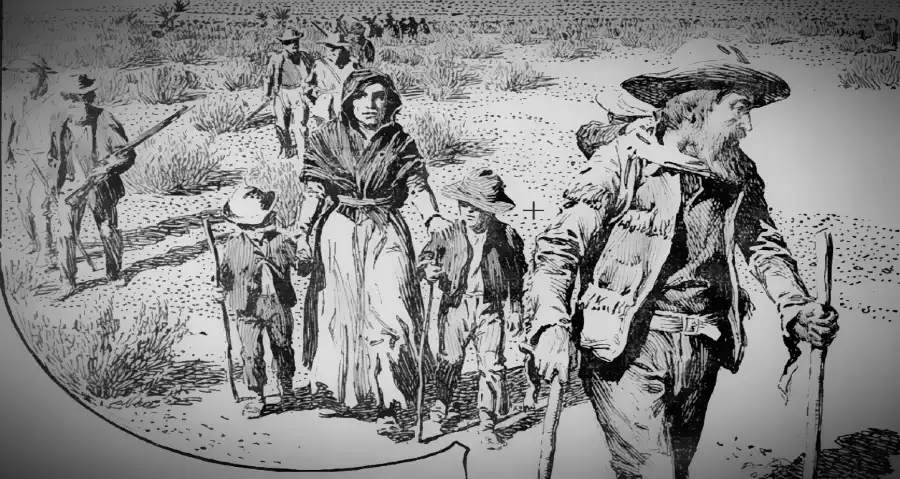The Gridleys’ Gold Fields Diary – the 40-Mile Desert, a Barrier Without Water
Daniel Ray / Toni Mann
PLACERVILLE, California (InEDC) Dec 21, 2022 — PART 2
The horse they had bought at Council Bluffs died. Another had been sick on the Platte and was still lame. What if the others should fail? Finally. they reached the 40-mile Desert, a barrier without water or grass, barring the way to the cool waters of the Truckee River and California. Like most emigrants the Gridleys probably crossed it in one long march, cutting grass by hand and filling water barrels at the sinks of the Humboldt River to sustain their teams on the 24 hour race over its barren flats.
With the desert at their backs. the Half Day boys relaxed. Ahead of them lay cold rivers, tall pines, the Sierra Nevada, and the gold fields. They left the wagon, tent. John’s overcoat, and a pair of worn out pants on the desert’s edge. The company split up. John took the horse they’d bought from the French’s back in Half Day. George-the white-faced bill horse, and Charles Clingman the mare, and together they packed across the mountains to Placerville. They arrived on July 31st. with three used up horses and 80 or 90 dollars between them.
It was, they admitted, a long and somewhat tedious journey. Still, it was an amazing feat, shared by perhaps journey”. Still, it was an amazing feat, shared by perhaps 100,000 others in 1849 and the early 50’s. Before long the road was improved with regular way stations and trading posts. In 1850, it was at its worst.
Although many tame through well and safely. is it to be wondered at, that horses, mules, and cattle broke down, that provisions were exhausted, hundreds of miles from the settlements, and far from human aid. and that men, women, and children were left destitute. without a mouthful to eat. and without the means of getting forward. exposed to a burning sun by day, and the chilling cold of night? Perhaps an exhausted worn out horse or mule might be left to carry a remnant of supplies; yet even without this slender aid, mothers might be seen wading through deep dust or heavy sand of the desert, or climbing mountain steeps, leading their poor children by the hand; or the once strong man. pale, emaciated by hunger and fatigue, carrying upon his back his feeble infant, crying for water and nourishment, and appeasing a ravenous appetite from the carcass of a dead horse or mule; and when they sank exhausted on the ground at night, overcome with weariness and want of food, it was with the certainty that the morning sun would only be the prelude to another day of suffering and torture. Were the personal adventures of a moiety of the emigration of 1850 to be written, they would furnish a volume of absorbing interest, forming a sad commentary on the California gold-seeking mania. which produced more widespread misery than any similar occurrence in the annals of mankind (Delano.1854).
It was through this minefield of sand, sage, and broken dreams that the Gridleys and others of their mess from Lake Comity made their way to Placerville. They arrived good health and spirits… As for myself,” wrote John. “I am not in the least degree homesick and have never for a moment regretted my embarkation in the expedition” (Gridley.8-4-5C).
— To Be Continued —
Prolog: The Miners
Chapter 1, Part 1: – Gone to See the Elephant!
Chapter 1, Part 2: – The 40-Mile Desert, a Barrier Without Water
[Transcribed from original handwritten letters mailed home from “the diggins,” between 1850-1859. George Gridley, aged 29 and brother John T. Gridley, age 21]
pg 11 [PART 2]

